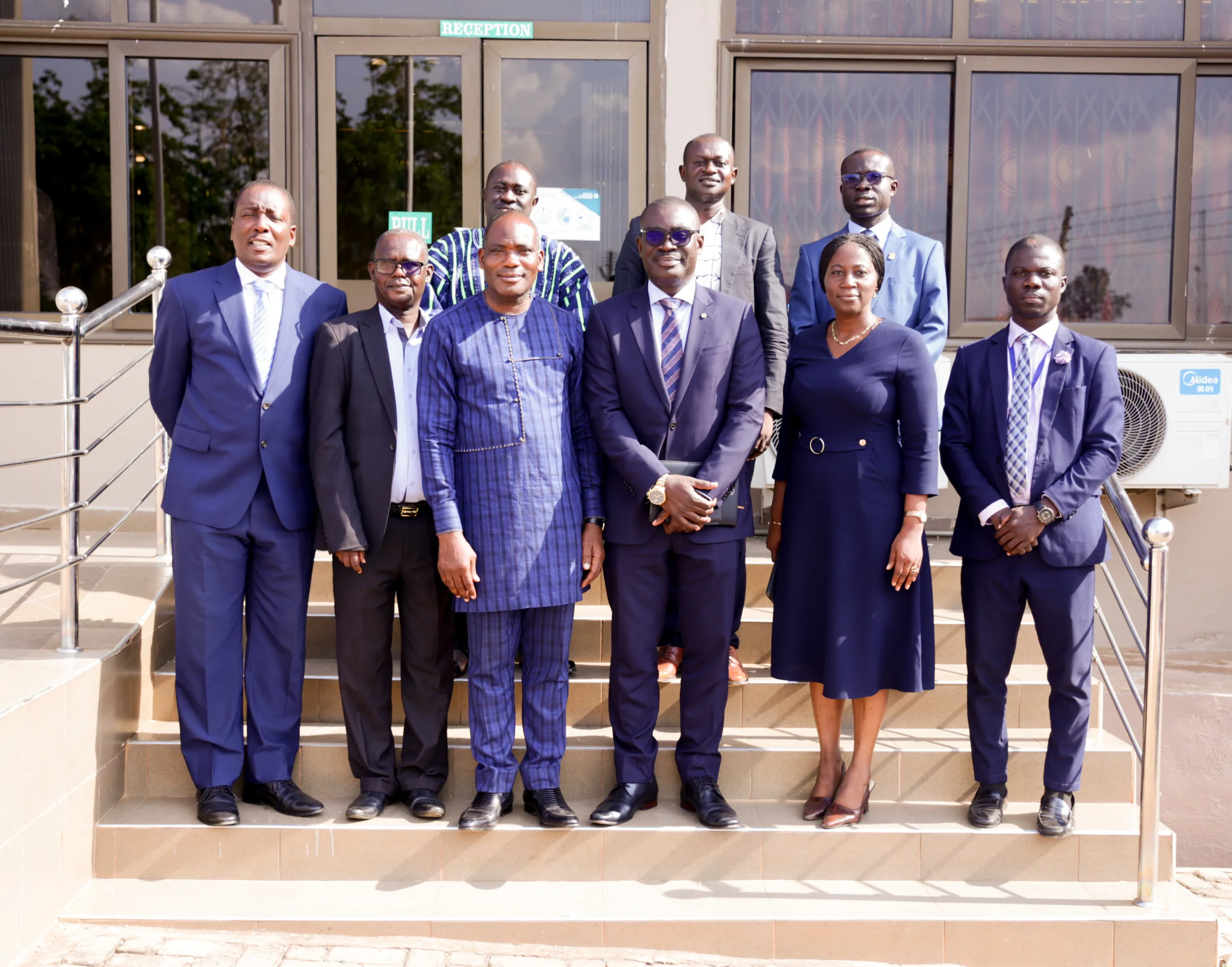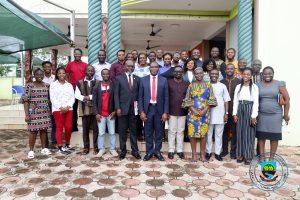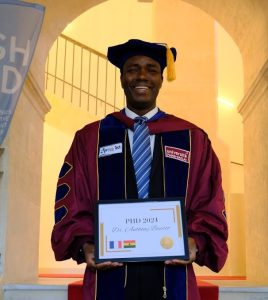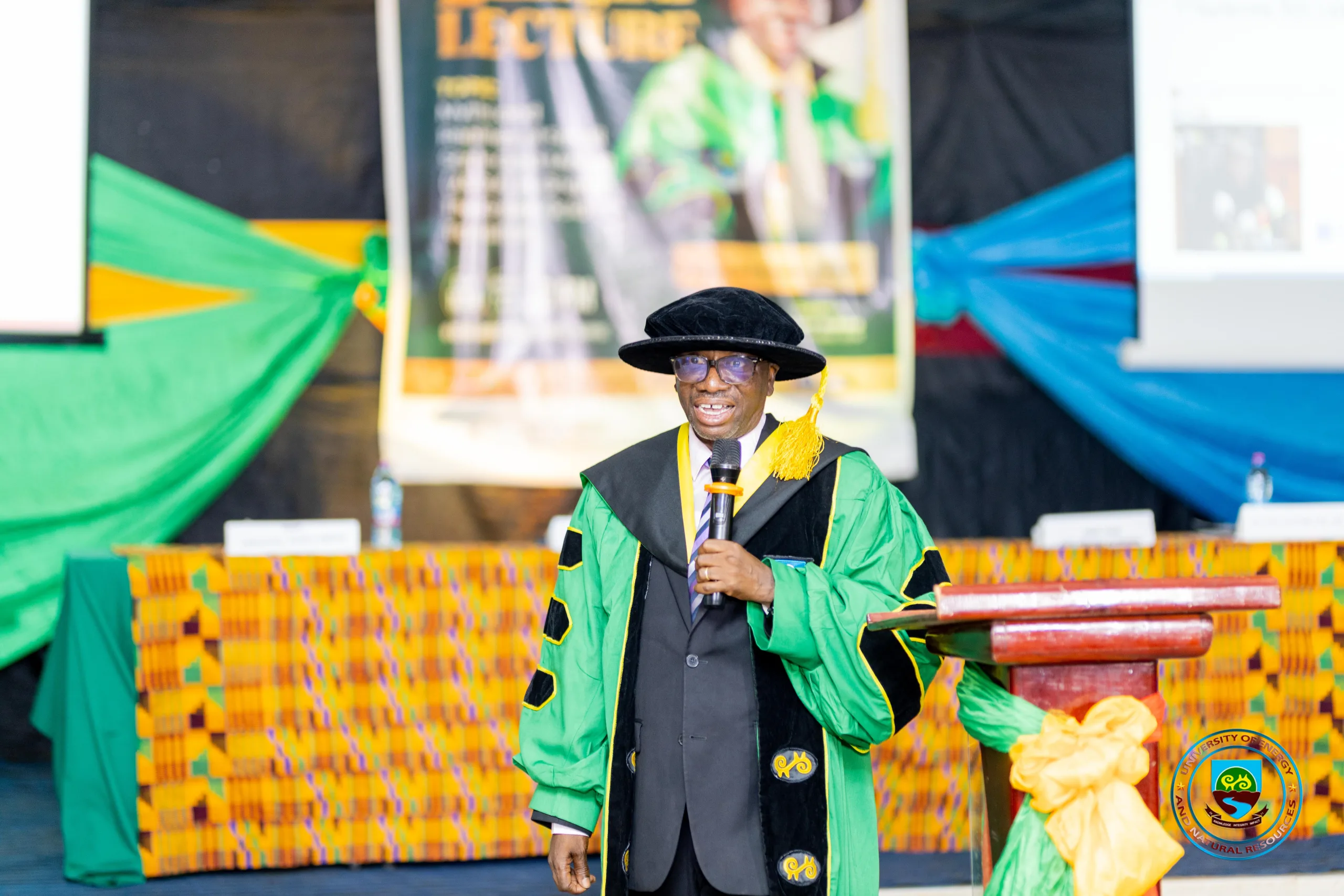
Professor Emmanuel Arhin at the Department of Geospatial Sciences, School of Geo-Sciences, Dormaa Campus of UENR on Thursday, March 17, 2023, delivered his Professorial Inaugural Lecture on the topic: “Myths and Realities of Small-Scale Gold Mining (ASGM) in Ghana: The Green Gold Transition”. This makes him the 2nd Full Professor of the University to give an Inaugural Lecture.
Speaking on the topic, Prof. Arhin said his lecture sought to propose methods to guide the ASGM sub-sector to become better operators of Green Gold Mining in Ghana and beyond. He underscored that gold is a precious mineral which is needed for national development, however, the quest to explore this mineral for the good and quality of lives of the expanding population causes more harm than good. Gold, according to Prof. Arhin, is the commercially exploited mineral in Ghana accounting for about 95% of the country’s mineral revenue. He added that the artisanal small-scale mining sub-sector contributes about 40% to Ghana’s Gross Domestic Production (GDP) and a total ban on the sector, would lead to an increase in unemployment and a collapse of the Ghanaian economy. “But that does not mean that the contribution of the Gold to the GDP should be maintained at the expense of the environment and health of its population”, Prof Arhin noted.
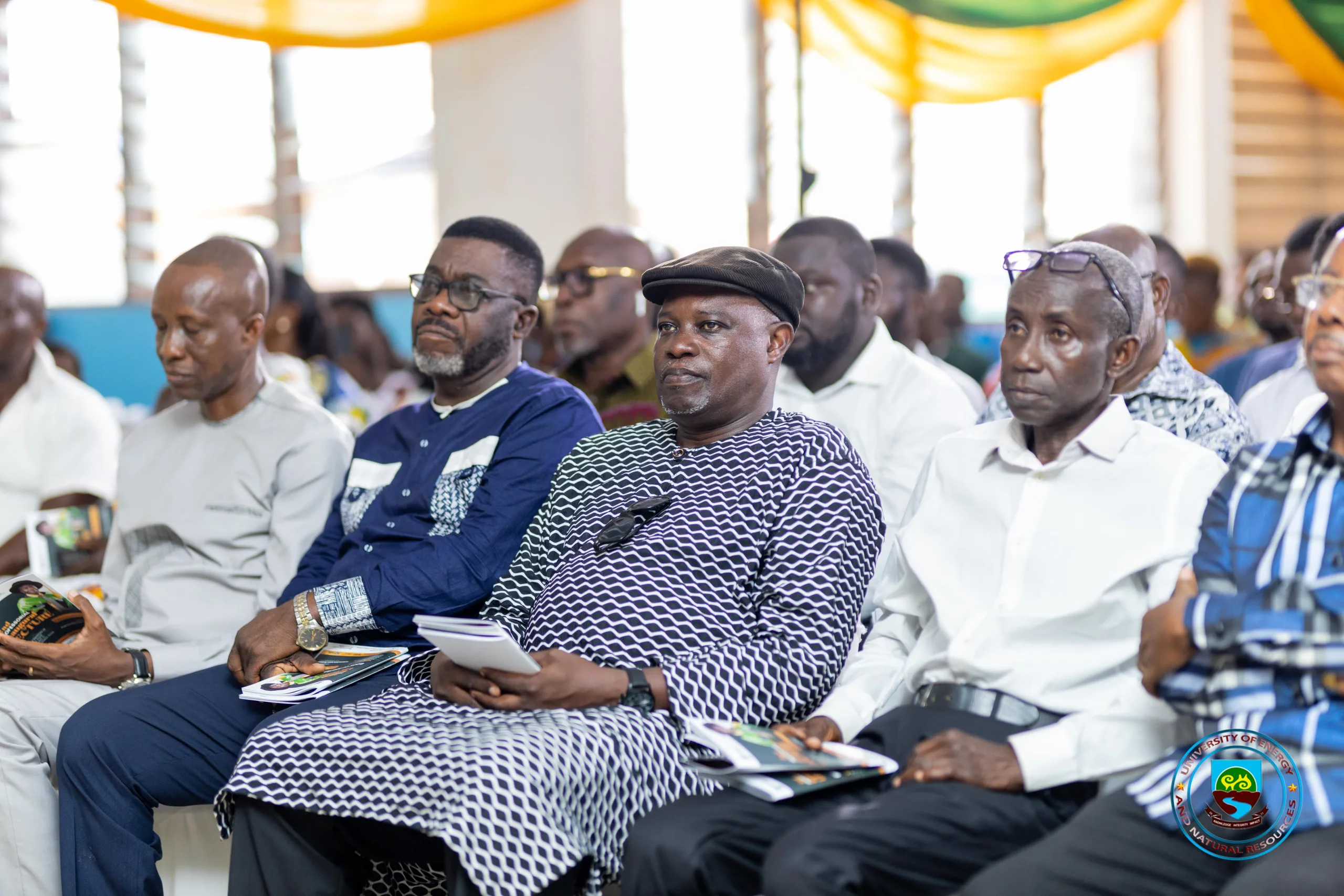
Citing the World Gold Council, Prof. Arhin said the Council’s recent policy ascertains its purchased gold as mined and sourced responsibly, suggesting that the Council would soon not deal with gold mined under conditions against their policy. He explained that this development means for the future of Ghana’s gold to be marketable, the sector needs to transition to the “Green Gold Edition”. “That is to transit to environmentally friendly development starting from proper geological investigation to metal extraction devoid of banned chemicals while respecting human and employee rights”, he explained. Prof. Arhin also revealed that the traditional cyanide can be replaced with the SEYCHEM-CFX100, a new eco-friendly chemical in gold extraction, which recovers more gold than the former chemical.
Prof. Arhin said, “To conform to the World Gold Council policy of the Responsible Mining Principle, then the only option is the ASGM, which needs to move to more sustainable, responsible, and eco-friendly operations by, reducing air and water pollution, eliminating permanent scars or degradation of natural landscapes, providing environmental justice to the ecosystems, and ensuring it earns the consent of the local and global communities – the so-called Social License to Operate”.
To Prof Arhin, Green Gold Transition could be a reality if the following recommendations are holistically implemented:
1) The legal framework must also be looked at alongside the technical issues. The modes of operations in mining must reflect the changes in the law. Using rudimentary tools to mine a 25-acre concession for about 5 years will lead to lower environmental impact and the impact will not be the same as mining with heavy moving equipment.
2) Standard operations procedure starting from scout prospecting through to initial systematic prospecting to detail exploration towards anomaly delineation to prospective discoveries must be compulsory for this sun sector.
3) Granting of mining licenses and leases should only be given until an approved report by the Minerals Commission has been granted and this should provide information on grades of ore and exact locations earmarked for mining and the scheme of mining methods clearly explained in the report.
4) There should be plans for land preservation and conservation as part of the report to the Minerals Commission
5) The results obtained between the traditional cyanide and the new eco-friendly chemical in gold extraction found the SEYCHEM-CFX100 as a suitable substitute to replace cyanide.
6) It found the high concentration of SEYCHEM between 1500-3000 ppm to give similar gold recovery as cyanide at laboratory conditions and 1000 ppm of SEYCHEM recovers more gold than cyanide at 1000 ppm at Plant Conditions.
Prof. Emmanuel Arhin holds BSc. (Geological Eng) degree from the University of Science and Technology (UST-Ghana); an MPhil (Mineral Exploration) degree from Kwame Nkrumah University of Science and Technology (KNUST- Ghana) and PhD (Geology) degree from Leicester University (UK). He is a journal reviewer and has reviewed many Scopus-listed Journals and many others. He has over 90 publications in the field of geoscience including peer-reviewed journal articles, technical reports, and special publications. He has given more than 40 talks including public lectures in Ghana and abroad and as a keynote speaker in several of these talks.
His research in applied geochemistry and applied geology has been on diverse issues such as the impact of the natural environment on public or population health, regolith science in the definition of gold anomalies, value addition to physical resources, as well as improving the standard operating procedures for the Small-Scale Mining activities in Ghana. Recently, he has been involved in a new field of a mineral processing technique that seeks to replace the use of harmful chemicals such as mercury (Hg) and sodium cyanide (NaCN).
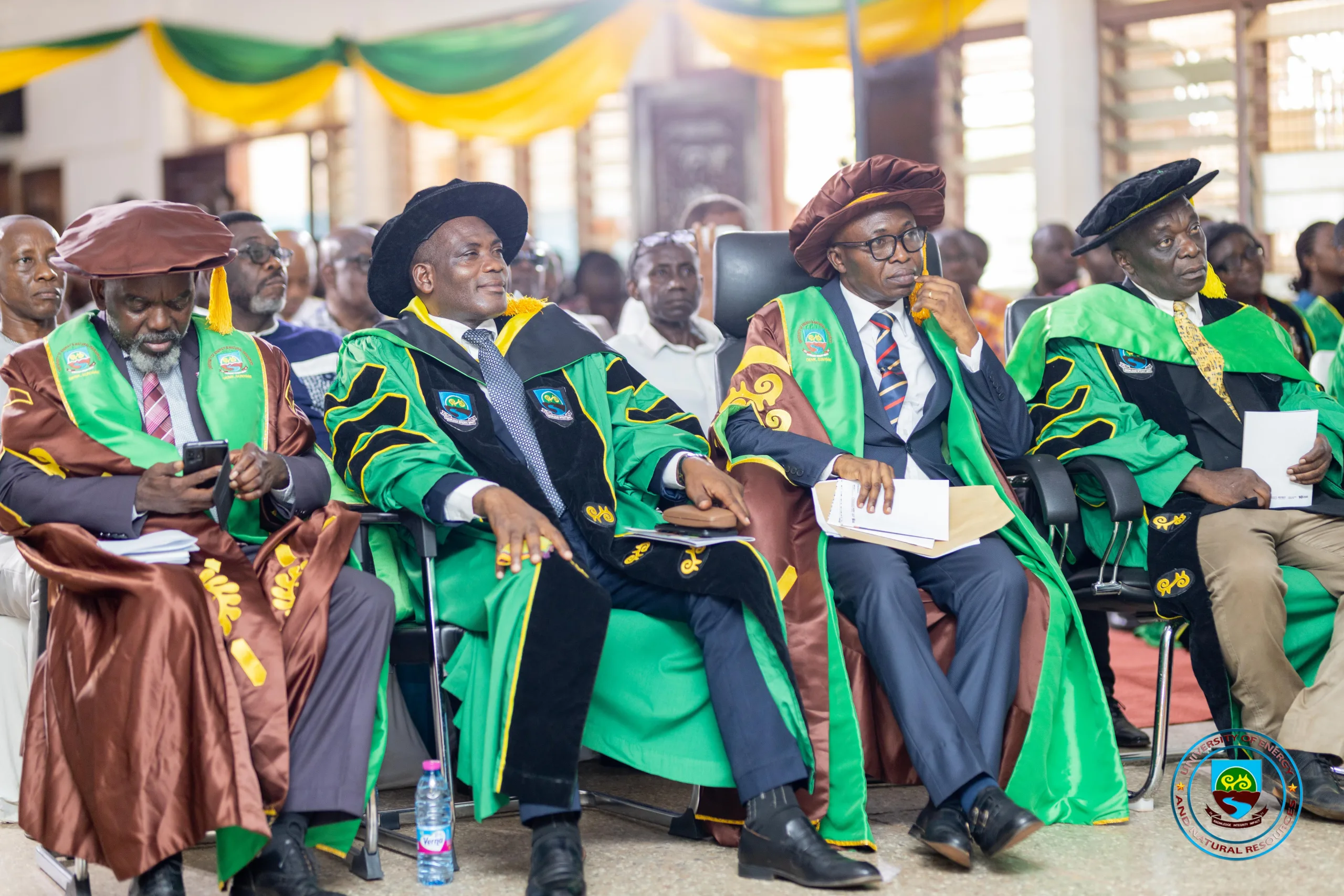
The Lecture, chaired by the Vice-Chancellor, Prof. Elvis Asare-Bediako was well attended by the members of the University community, traditional leaders, stakeholders in the mining sector and the Speaker’s family members.
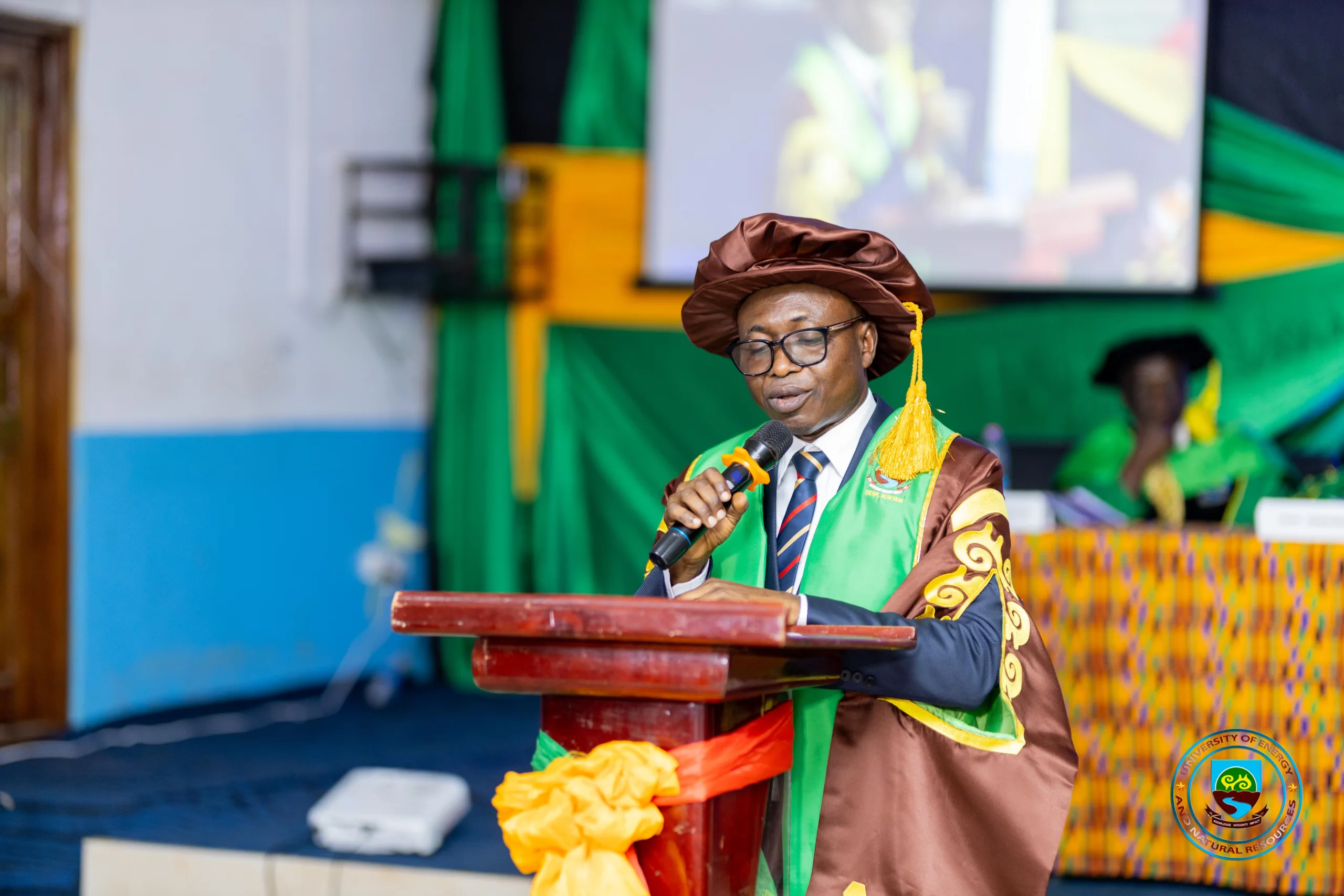
In his closing remarks, the Vice-Chancellor addressed Prof. Emmanuel Arhin as a renowned scholar who is very resourceful to the University’s development. He congratulated him for the remarkable academic feat of attaining a status of a full professorship.
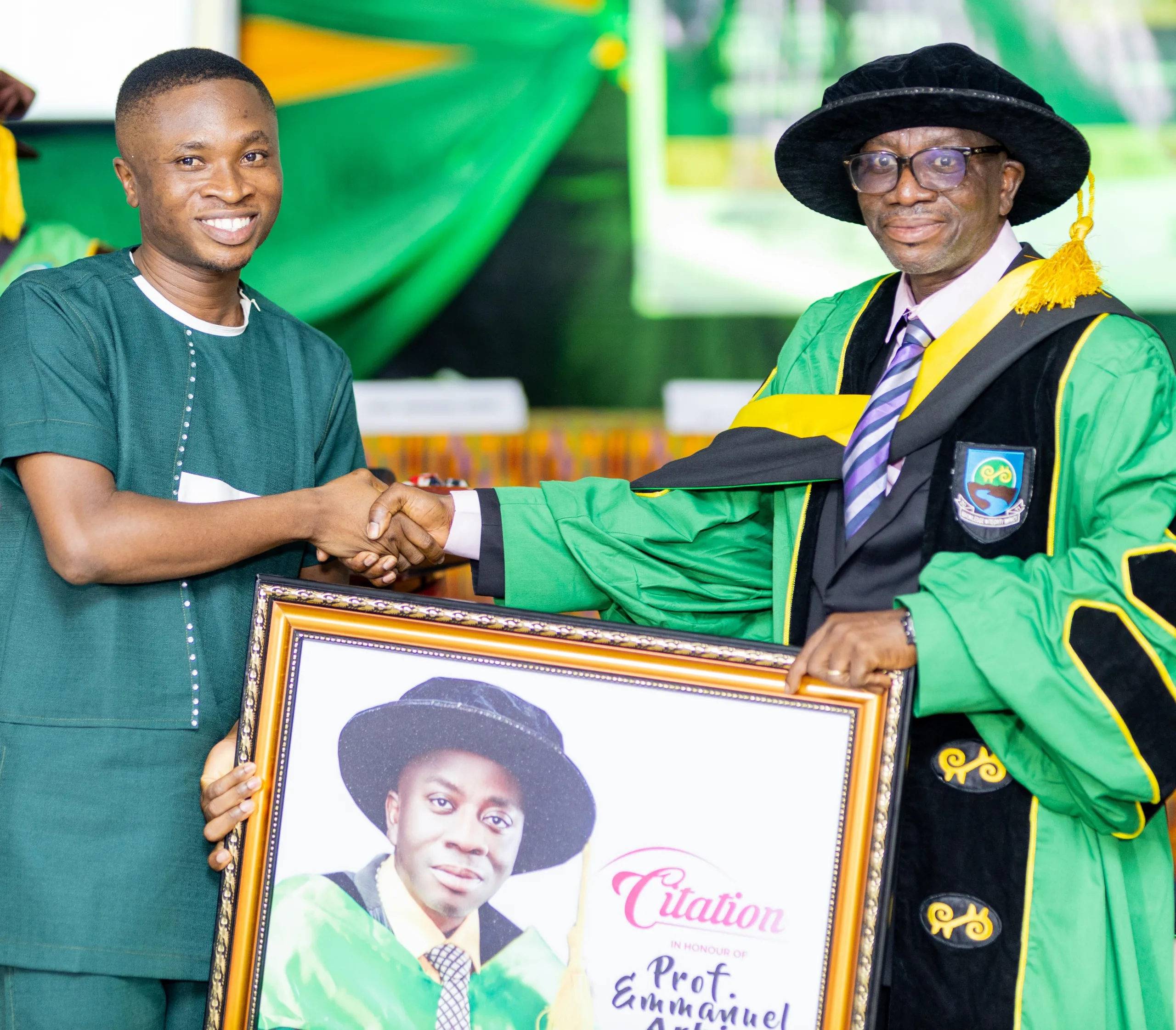
Prof. Arhin at the end of his lecture received presentations and citations in his honour. These came from his Family, his School and Department, some members of the University Community, Individuals as well as some Stakeholders in the mining industry.



